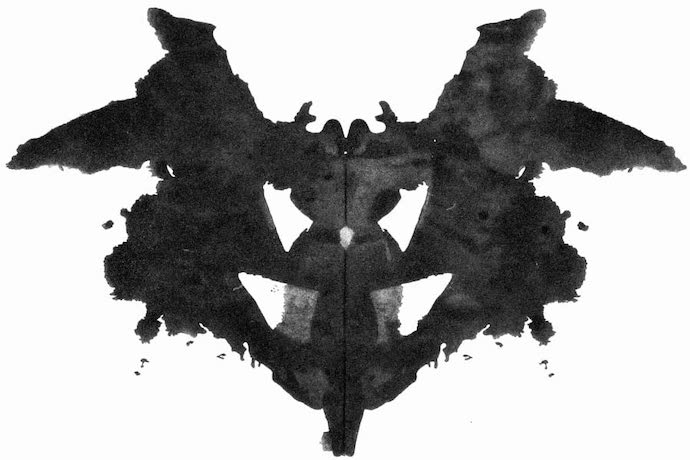Unprecedented. Overwhelming. Uncertain. The particulars and scope of the Covid-19 pandemic are without comparison. And no, this is not what war is like. In war, you have comrades, you have authority and order, you have a mission to accomplish—this pandemic has exposed the absence of all of this.
But we do have other frameworks to consider, because this is what trauma is like. Most of us think of trauma on a personal scale, as in something terrible that happens in a matter of moments like a car accident or a sexual assault; an acute event that changes the course of our life and how we live it. But trauma can also come in the form of systemic subjugation, whether class-, caste-, or race-based, in which whole groups are collectively and persistently targeted, in some cases for generations. Trauma like this is a social or even environmental reality, not just a personal one.
Some traumas have moral dimensions. The terminology of “moral injury” is now being discussed in many spaces along with Post Traumatic Stress Disorder (PTSD) to describe and help shape treatment of severe traumas. What we’re facing currently has deep moral dimensions unlike anything we’ve seen. We’re facing the prospect of death, loss of material and structural stability, and loss of community. Routines that were once mundane are now subjected to intense cost/benefit analyses. How much do I need milk?
The scope and scale of this pandemic’s terror is so pervasive, so total, that we’ve failed to call it by its true name: trauma. Instead we ventilate the day-to-day struggles, the surreal and unfamiliar, and the opportunities to laugh and jest at it all. We tell stories, share pictures, and try in any way we can to offer our sincere support for one another’s wellbeing. We’re coping to survive.
But the specter of uncompromising devastation and unspeakable anguish lurks between the lines. We are both inexplicably tired and unsatisfyingly stimulated. We are avoiding bad news with all our might, and scouring the internet for new evidence-based revelations. We’re having trouble sleeping. We’re feeling irritable and judgmental toward others’ choices, and how, in their choosing, they may threaten our shared existence. We’re feeling guilt for what we’ve left undone and grief for what we’ve lost.
We’re experiencing all this because so many of our values, beliefs, and behaviors (our routines, habits, hobbies, etc.) are being disrupted. This new encompassing reality is defying our capacity to accommodate and/or assimilate all these new challenges, limitations, and needs into our previous functioning. That “new normal” you’ve been hearing about looks an awful lot like the aftermath of trauma.
In addition to those who’ve already been affected by the illness itself, only those on the frontlines—the first responders, the hospital workers, the delivery drivers, the workers at the post-offices, grocery stores, and pharmacies—can speak of the acute traumas of this pandemic. In the coming weeks, many of us will find ourselves on the frontlines as we become infected or those near to us succumb. Today, nearly all of us are bystanders, feeling both terror and helplessness. Thanking what remains of our theologies of a benevolent universe and hoping flimsy belief tokens like But for the grace of God… don’t get caught in our throats with a shortness of breath.
Trauma changes the way we think. Our thoughts tend to narrow on the basics, and we lose sight of the bigger picture. When the bigger picture is a global crisis with no end in sight, our gaze will become even more narrow as we actively avoid the wider stress. Shelter-in-place is not only a civic duty; it’s a psycho-spiritual-emotional condition. When we scramble to find the last available package of toilet paper, we’re committing the perfect demonstration of our most basic concern: “hey, with all this going on, I’m just worried about my a–”
The scale of this trauma could turn us ultimately in a different direction: toward collective concern for our neighbors and the interrelated global nature of public health. Just as our moral outrage at persons in positions of authority and responsibility stems from our moral distress, our moral distress could energize concern and compassion, and give life to service and community-building.
Like so many others, I’m dealing with a household inundated with stress, uncertainty, and despair. And I’m also holding two dreams. First is the dream of a community that recognizes its common fate, that questions the fabrications of national borders and all other devices of nationalism. A community that experiences a sense of collective belonging that transcends barriers of all kinds, not because we’re the same but because we know that we’re inescapably cleaved to and dependent on one another. In this dream, we remember that we’re created to belong to each other.
Second is the dream of an earth, devastated by the ravages of human living, now receiving an enforced restraining order, albeit a brief reprieve from the wanton and insatiable desires of so-called civilized societies. In this dream, we reflect on the ways we’re not the center of the story, but guests given hospitality in a house we didn’t build, recipients of generosity we haven’t earned. In this second dream, we’re humbled by and grateful for this hospitality.
Today we’ll do what’s necessary for our survival because we’re wired to survive. Our ancestors did it, and that’s why we’re here now, challenged, yet able to adapt, to reorient and innovate into the “what’s now” and the “what’s next.” It will be better, the more of it we do with each other’s best interest in mind. It will be better, the more we consider what in the midst and the aftermath of this undoing could be and perhaps should be left behind; the more we consider what needs to change, what needs to be learned, what needs to be given our collective attention going forward. This may be the defining crisis of our lifetimes. How do we wish to be defined?


